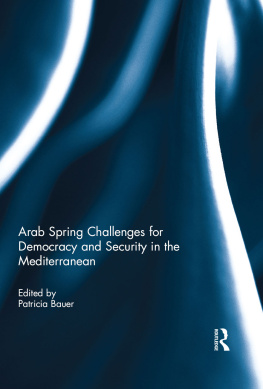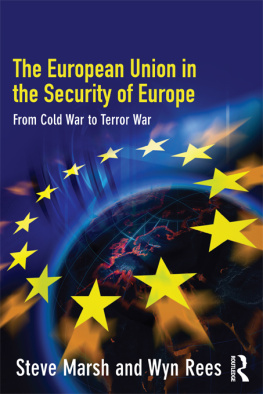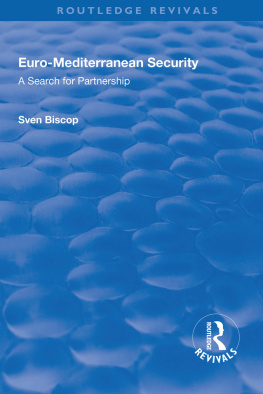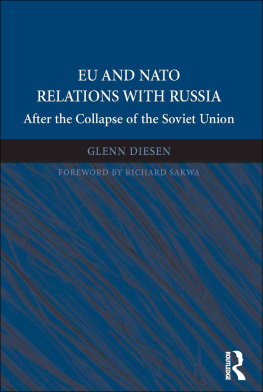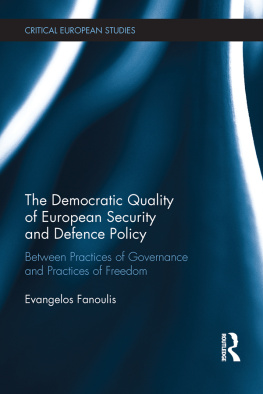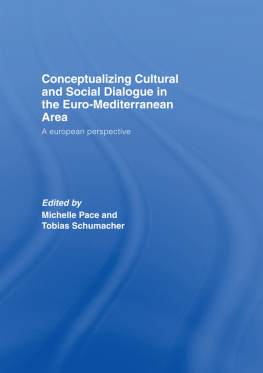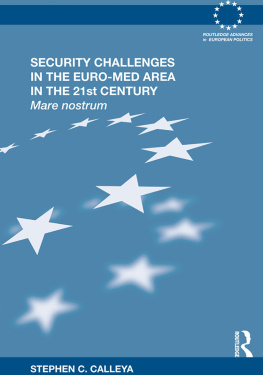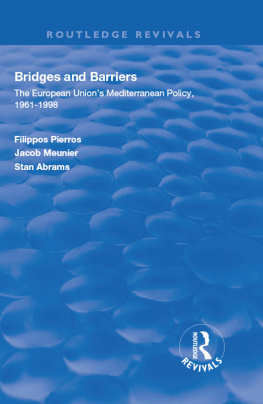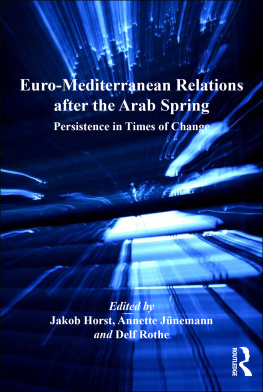Arab Spring Challenges for Democracy and Security in the Mediterranean
This volume presents essential aspects of Mediterranean politics to be reconsidered in the light of the Arab upheavals since 2010. Taking as its focal point the question of how far EuropeanMediterranean relations are challenged by the various developments, this book explores the relationship between security and democracy within the Arab countries and in European-Mediterranean relations. The ambiguity between the promotion of democratic values and the preservation of common interests in economic and security affairs is stirred up by changing political actors and new conflictual constellations inside the Arab countries.
The chapters in this volume offer a range of different angles on the re-formulation of the European Neighbourhood Policy as well as the Democracy Assistance towards the Southern Mediterranean. They discuss the major security issues of a cooperative security architecture, counter-terrorism action, migration control and security sector reform in order to explore the relevant challenges in the field. The contributions analyse the recent developments and challenges, provide critical insights into those fields and endeavour to provide some proposals for improving Mediterranean cooperation on democracy and security.
This book was originally published as a special issue of Democracy and Security.
Patricia Bauer teaches Politics and International Relations at the University of Dundee, United Kingdom. Her areas of specialization are: peace and security in international relations; European Union external relations; and Mediterranean security. Her research focuses on the relations between transition, democratization and security in the near abroad of the European Union in the Southern Mediterranean and Eastern Europe. Previously, she held research and teaching positions at Cairo University, Egypt, the University of Osnabrck, Germany, and the University of the Federal Armed Forces, Hamburg, Germany.
Arab Spring Challenges for Democracy and Security in the Mediterranean
Edited by
Patricia Bauer
First published 2015
by Routledge
2 Park Square, Milton Park, Abingdon, Oxon, OX14 4RN, UK
and by Routledge
711 Third Avenue, New York, NY 10017, USA
Routledge is an imprint of the Taylor & Francis Group, an informa business
2015 Taylor & Francis
All rights reserved. No part of this book may be reprinted or reproduced or utilised in any form or by any electronic, mechanical, or other means, now known or hereafter invented, including photocopying and recording, or in any information storage or retrieval system, without permission in writing from the publishers.
Trademark notice: Product or corporate names may be trademarks or registered trademarks, and are used only for identification and explanation without intent to infringe.
British Library Cataloguing in Publication Data
A catalogue record for this book is available from the British Library
ISBN 13: 978-1-138-79014-8
Typeset in Times New Roman
by Taylor & Francis Books
Publishers Note
The publisher accepts responsibility for any inconsistencies that may have arisen during the conversion of this book from journal articles to book chapters, namely the possible inclusion of journal terminology.
Disclaimer
Every effort has been made to contact copyright holders for their permission to reprint material in this book. The publishers would be grateful to hear from any copyright holder who is not here acknowledged and will undertake to rectify any errors or omissions in future editions of this book.
Contents
Patricia Bauer
Ingeborg Tmmel
Sally Khalifa Isaac
Andrea Teti, Darcy Thompson, and Christopher Noble
Federica Bicchi and Benedetta Voltolini
Neve Gordon and Sharon Pardo
Fulvio Attin
Alex MacKenzie, Christian Kaunert, and Sarah Lonard
Peter Seeberg
Francesca Longo
The chapters in this book were originally published in Democracy and Security, volume 9, issues 12 (June 2013). When citing this material, please use the original page numbering for each article, as follows:
Chapter 1
EuropeanMediterranean Security and the Arab Spring: Changes and Challenges
Patricia Bauer
Democracy and Security, volume 9, issues 12 (June 2013) pp. 118
Chapter 2
The New Neighborhood Policy of the EU: An Appropriate Response to the Arab Spring?
Ingeborg Tmmel
Democracy and Security, volume 9, issues 12 (June 2013) pp. 1939
Chapter 3
Rethinking the New ENP: A Vision for an Enhanced European Role in the Arab Revolutions
Sally Khalifa Isaac
Democracy and Security, volume 9, issues 12 (June 2013) pp. 4060
Chapter 4
EU Democracy Assistance Discourse in Its New Response to a Changing
Neighbourhood
Andrea Teti, Darcy Thompson, and Christopher Noble
Democracy and Security, volume 9, issues 12 (June 2013) pp. 6179
Chapter 5
EU Democracy Assistance in the Mediterranean: What Relationship with the Arab Uprisings?
Federica Bicchi and Benedetta Voltolini
Democracy and Security, volume 9, issues 12 (June 2013) pp. 8099
Chapter 6
What Can Pro-Democracy Activists in Arab Countries Expect from the European Union? Lessons from the Unions Relations with Israel
Neve Gordon and Sharon Pardo
Democracy and Security, volume 9, issues 12 (June 2013) pp. 100119
Chapter 7
Mediterranean Security Revisited
Fulvio Attin
Democracy and Security, volume 9, issues 12 (June 2013) pp. 120136
Chapter 8
EU Counterterrorism and the Southern Mediterranean Countries after the Arab Spring: New Potential for Cooperation?
Alex MacKenzie, Christian Kaunert, and Sarah Lonard
Democracy and Security, volume 9, issues 12 (June 2013) pp. 137156
Chapter 9
The Arab Uprisings and the EUs Migration PoliciesThe Cases of Egypt, Libya, and Syria
Peter Seeberg
Democracy and Security, volume 9, issues 12 (June 2013) pp. 157176
Chapter 10
The Relevance of Security Sector Reform in Humanitarian Intervention: The Case of the European Union in the Mediterranean
Francesca Longo
Democracy and Security, volume 9, issues 12 (June 2013) pp. 177192
Please direct any queries you may have about the citations to
clsuk.permissions@cengage.com
Patricia Bauer
Political Science, European Peace University, Austria
The policy of the European Union (EU) toward the Mediterranean has undergone two main metamorphoses during the last 25 years. In 1995, it started from a collective security idea with the Barcelona Process, but due to the poor success of this collective approach, it underwent a realist turn with the creation of the European Neighbourhood Policy in 2004. The Arab Spring in 2011, by questioning authoritarianism, influenced the perception of what is recognized as a security problem and who can define it. The authoritarian rulers and their supporting security forces are now challenged by their populations, and societal circumstances are so unstable that nearly every domestic problem can be politically given a spin to become a security risk. Aside from this, violent conflicts and civil wars demand an answer from the EU. In this situation, the EUs answer to the Arab Spring does not directly respond to the changing security situation in the Mediterranean. It emphasizes domestic democracy and civil society but does not take up the potential risk discourses. Concerning violent conflicts, the EU as a community is not at all active in the region but leaves this field to its member states, NATO, the Arab League, and the United Nations. Thus, the perceptions, ideas, and needs of Mediterranean security between the EU and the Southern partner states still differ harshly and seem to disregard the risk dimension of the Mediterranean security problems in this period of Arab transition.

